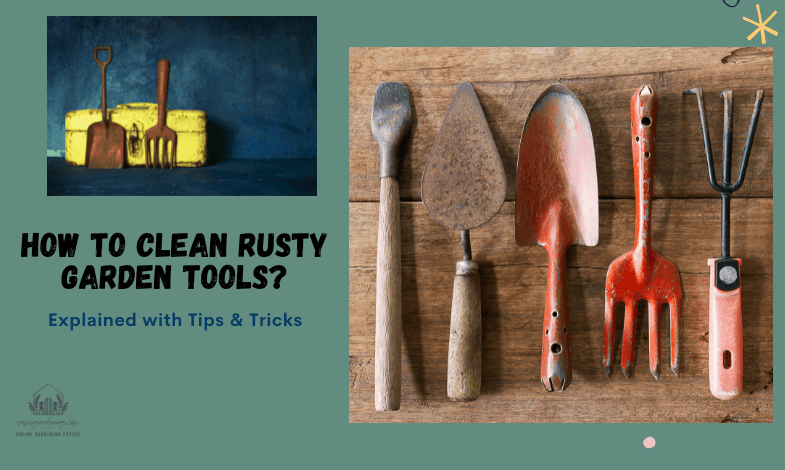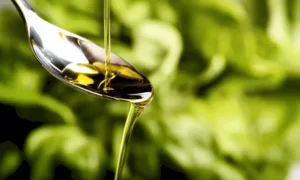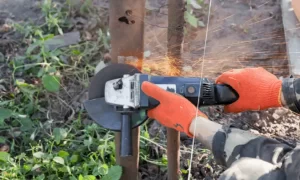How to Clean Rusty Garden Tools: Best Tips & Tricks in 2023: How many times, when entering the shed or garage, do you discover rusty garden tools? After some time without using them, it is very common that corrosion affects their metal parts. Shovels, rakes, and outdoor shears are often used for a certain period of time.
Once the task is finished, they are usually stored in a shed. Then they are exposed to dirt and humidity, the main causes of rust. To counteract this, we have some techniques to show how to clean rusty garden tools.
This type of tool maintains direct contact with soil, sap, and other components of plants. If they are not effectively sanitized, they will likely wear out sooner than expected. In addition, if the drying is not correct and the space is humid, the metal parts of the same will be corroded.
Even so, it is possible to avoid these processes. There are many ways, some homemade and others more advanced. But all of them contribute to their protection. How to maintain garden tools properly? Here are some recommendations that will help you.
Contents
- How to Clean Rusty Garden Tools?
- Now you might be interested in: Are cleaning chemicals harmful?
- Turpentine
- Oil
- Black Tea or Cola
- Salt and Lemon juice
- Vinegar
- Grinder
- Citric Solution
- Tips to Prevent Garden Tools from Rusting
- Final Thoughts: How to Clean Rusty Garden Tools
- How to properly clean badly rusted tools?
- Which one is the best homemade rust remover?
- How to remove rust from hand tools without scrubbing?
How to Clean Rusty Garden Tools?
Cleaning rusty garden tools are easier than you think. You just need to find out the right way. If the tools already contain layers of rust, it does not mean that they should be discarded. There are several methods to restore their good condition. Depending on the case, you can use the following techniques that will renew the tool. Of course, it is necessary to wear the appropriate clothing – such as rubber gloves, mouth masks, and old clothes – especially in situations where it is necessary to handle chemical elements.
Now you might be interested in: Are cleaning chemicals harmful?
Turpentine
Cleaning rusty garden tools with chemical products may concern you. As turpentine is a chemical product coming from the distilled resin of some trees, it is important to use turpentine in open and ventilated environments. Its ingestion, or even prolonged breathing, can cause poisoning. Due to its corrosive properties, it is often used as a paint remover.
Tips: In the same vein, soaking the tool with a cloth soaked in this product can help in cases of mild rust. If you wish to try it, be sure to take the necessary precautions before handling it.
Oil
How to remove rust from tools? Well, oil is a solution. Exposing metals to any oil can be useful, but the most recommended is boiled linseed oil. The application of this product on the tool, added to a few hours of rest, will make it suitable for gentle cleaning with aluminum foil. After this, you will notice the difference.
Black Tea or Cola
Both black tea and cola drinks can be useful for cleaning rusty garden tools, especially in cases of light stains. Simply soak them for a couple of hours and then proceed with cleaning.
Salt and Lemon juice
Another method for mild rust is to soak the tool in a mixture of salt and lemon with water. Later, it should be gently rubbed with steel wool and rinsed.
Tips: Baking soda is also effective in these situations.
Vinegar
A lot of you may want to know how to clean rust off tools with vinegar. Vinegar, composed of acetic acid, has many benefits. However, its handling must be controlled, as it can sometimes cause unwanted reactions on the skin. Preparing a mixture of vinegar and water in equal proportions, and leaving the tool to soak overnight, is one of the most commonly used methods for sanitizing garden tools. Then, the rust should be removed with a brush.
Grinder
When you are searching for how to clean rusty garden tools, in situations of heavy oxidation, a recommended technique is to pass the grinder over the leaves and metal parts. Use a wire disc if you do not want to damage it.
Citric Solution
For more severe cases, citric acid can be used, diluted at a ratio of 3% with water. Certain precautions should be taken, such as avoiding inhalation, contact with the skin, and, above all, with the eyes. The tool is then moistened and left to stand. Finally, it is sufficient to clean it with plenty of water.
Tips to Prevent Garden Tools from Rusting
To prevent garden tools from deteriorating due to rust: it is possible to achieve proper maintenance. Here are some recommendations:
- Sharpen them. Once they have been used, and before they are put away, it is important to go over the blades with sharpening stones or a flat-file. In this way, they will be ready for the next use.
- Blackboard chalk. The contact with this element absorbs the humidity that causes the oxidation of the tools.
- Wash them with water and detergent. A correct cleaning after each use is very important to extend the useful life of the instruments.
- Spray them with WD-40. An element that serves for countless lubrication situations but must be used with care since its ingestion, inhalation, or exposure to the eyes are harmful to health. In the case of garden tools, spraying them with the spray and then wiping them with a cloth will prevent them from rusting.
- Make sure that no residues are left behind. Many garden tools are in permanent contact with plants that can leave sticky residues. It is essential to check them well and remove these residues, as they can later lead to fungi and other pathogens.
- Once the tools have been used and sanitized, storage is also an important step. It is best that they are hung or, at least, to avoid that they are piled up and in contact with each other.
- Resting in rice or sand. These elements are known to absorb moisture. For this reason, many gardeners store their tools in buckets of rice or sand to prevent rust from forming.
Final Thoughts: How to Clean Rusty Garden Tools
Finally, when you are interested in how to clean rusty garden tools, probably the most effective tip is constant use. If the tools are worked often, the simple contact and movement of their metal parts will prevent the generation of rust. Likewise, removing dirt with a simple brush, as well as storing them in dry and ventilated places, are the best recommendations.
Frequently Answered Questions
How to properly clean badly rusted tools?
The best way to remove rust from small hand tools is to soak them in a bowl of vinegar overnight and then scrub it with a metal brush.
Which one is the best homemade rust remover?
A mixture of vinegar, baking soda, and salt works as a professional rust remover. Also, raw potato and salt, tartar, and hydrogen peroxide work great for rust treatment.
How to remove rust from hand tools without scrubbing?
Try soaking your tool in a vinegar bath for at least 10 hours. After taking it out, scour the rust off and dry the tool properly.





